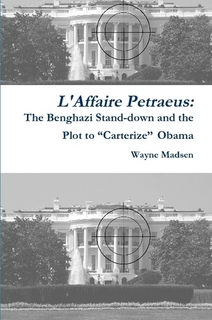March 31-April 2, 2017 -- Guest article: The Future of the Opioid Crisis under the Trump Administration
publication date: Mar 31, 2017
March 31-April 2, 2017 -- Guest article The New York Times recently called the opioid crisis ‘the 50-state epidemic’, since opioids took the lives of over 33,000 people in the U.S. in 2015. Trump’s inauguration led specific groups (including HIV lobbyists) to question the effect that the President’s health proposals would affect the advances made to put a stop to addiction and related diseases (such as Hepatitis C, HIV and AIDS). Specific worry centred around Vice President Mike Pence’s view on issues such as syringe service programs, which provide clean needles to injection drug users to prevent the spread of disease. When Pence was the governor of Indiana during one of the biggest HIV outbreaks in the state, he took months to authorise syringe exchange programs, despite their proven efficiency. Today, drug policy experts are also worried about a proposed spending plan from the Trump Administration, which would slash the grant provided to the Substance Abuse and Mental Health Services Administration’s mental health block grants by no less than $100 million, which could affect current addiction services. On March 29, 2017, President Trump announced that New Jersey Gov. Chris Christie, would be chairing a special commission to battle the opioid epidemic. Christie will be joined by US Attorney General Jeff Sessions, Health and Human Services Secretary Tom Price, and additional members of law enforcement, state government and other groups. Christie has expressed his concern about the opioid epidemic; New Jersey itself has seen a 16.4 per cent increase in drug overdose deaths from 2014 to 2015, according to statistics provided by the Centers for Disease Control and Prevention. Christie responded energetically, signing Senate Bill 3, which enables those suffering from substance abuse, to receive treatment immediately. Christie notes that the law also places strict limits on initial opioid prescriptions (doctors can only provide patients with five-day prescriptions for opioid painkillers). States such as New York, Massachusetts and Maine have enacted similar laws, but they typically allow prescriptions to cover a seven-day period. Last month, Christie told the press, ""As I've said before addiction is not a moral failing, it is a disease and the more that we talk about it as a disease, treat it as a disease, regulate it as a disease, the more people will finally get the idea that asking for help is not a sign of weakness, but it is in fact a sign of strength." Christie stressed the importance of parental awareness that asking for help for one’s child was not a sign that one is a bad parent; nor was asking help for one’s spouse the sign of personal failure. Rather, failure lies in ignoring the problem of addiction. At the press conference, Christie mentioned his recent visit to the White House, during which the problem of addiction and Christie’s legislative efforts on the subject, were discussed. Opioids are dangerous not only because of their own addictive properties, but also because users can need increasing amounts to obtain the same effect. In essence, these medications affect the nerves, causing sensitivity to pain where it once did not exist. There is also a strong link between over-prescription of opioid painkillers and the abuse of heroin. Journalist Amanda Hoover incisively notes: “For years, opioids were viewed through two distinct lenses: heroin, a dangerous and illicit substance used by drug abusers, and painkillers, medications given to relieve the pain of those who were injured or underwent a surgical procedure, or suffered from chronic pain.” Hoover states that for decades, pharmaceutical companies encouraged doctors to issue longer prescriptions with greater ease, using well-planned marketing campaigns to allay fears that the pills could cause addiction. Yet with statistics showing a clear link between increased prescriptions and soaring overdose rates, it is evident that prescribing painkillers for relatively minor injuries, could have very serious consequences. Christie at least seems to have the right mindset to head such an influential task force, yet the commission must be supported by other agencies and programs which are needed to deal with the crisis efficiently. While it is still early days in the Trump administration, we wait with baited breath to see if further cuts to mental health will once again propagate the myth that addiction is something other than what it has been proven to be: a mental illness. |
Login HereSearch the site |












